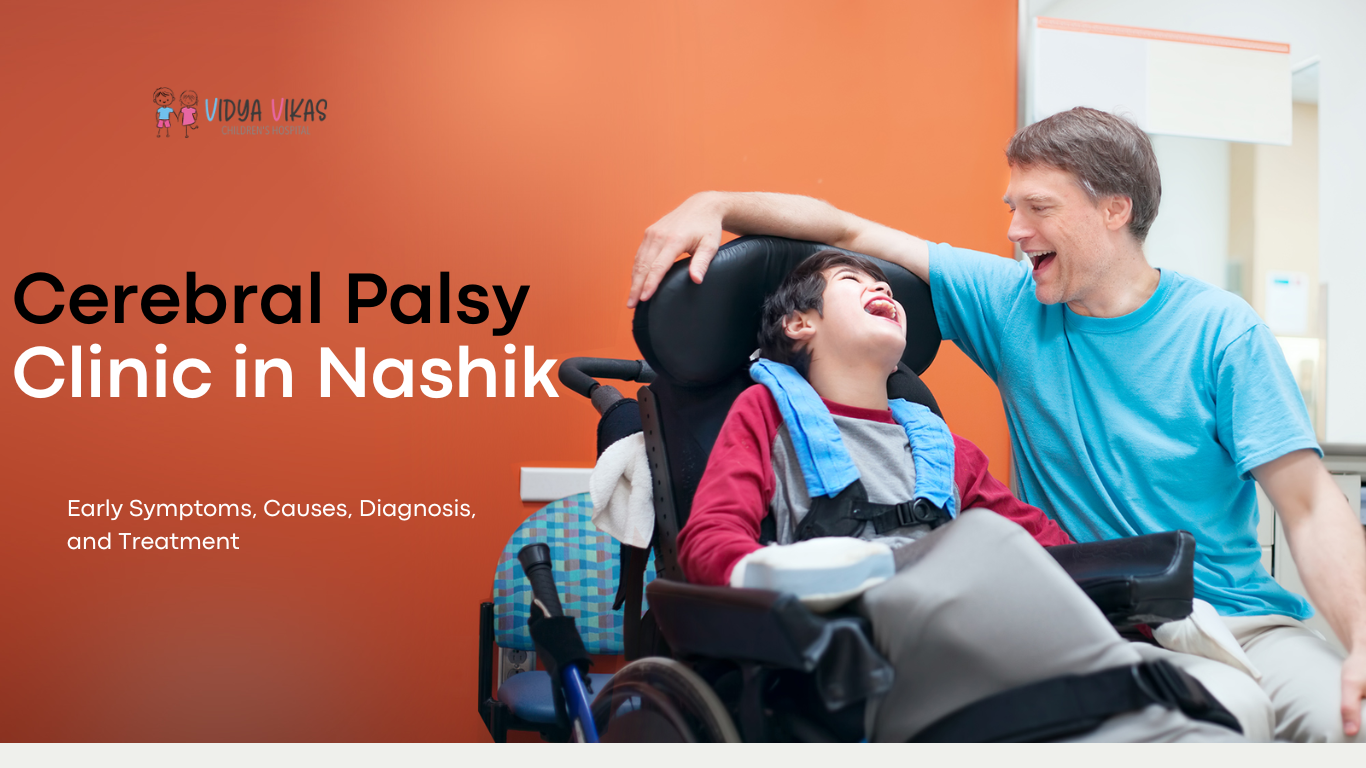


The overall pooled prevalence of cerebral palsy per 1000 children surveyed was 2.95. The observed prevalence of cerebral palsy in India is nearly similar to global estimates. Cerebral Palsy (CP) is a condition that affects muscle tone, posture, and movement due to abnormalities in the developing fetal or infant brain. It results in permanent motor dysfunction and limitations in functional abilities. CP has additional symptoms, such as altered sensation or perception, intellectual disability, communication and behavioral difficulties, seizures, and musculoskeletal complications.
The diagnosis of CP is made clinically. No specific test confirms or excludes the diagnosis of CP. However, a diagnostic evaluation should be performed in all children with CP to identify the underlying cause of CP when possible and to exclude other conditions.
Early diagnosis of CP begins with a detailed medical history and physical examination and involves standardized neurologic and motor development assessments. The initial assessment may lead to further diagnostic evaluation, which typically includes neuroimaging.
A prenatal and birth history review helps identify the risk factors for CP. Then follows a review of the newborn screening result for inborn errors of metabolism, newborn hearing test results, and ophthalmologic evaluation.
A review of the family history is important. Relatives with any of the following should raise suspicion for a genetic cause of CP:
Medical imaging, such as an MRI brain scan, can show brain abnormalities.
If the MRI brain is normal – further metabolic and genetic testing would follow to check for mutations in specific genes that cause CP.
Ancillary tests for vision (VEP), Hearing (AER/BERA), and seizures (EEG) would be undertaken to look for comorbidities.
The underlying causes of cerebral palsy (CP) are often unknown, though several perinatal risk factors have been identified.
like dressing themselves, using crayons for drawing, or using a spoon to feed themselves.
In addition to these therapies, assistive devices/orthoses may be prescribed by your doctor if your child has difficulty walking or performing other tasks independently.
If you are looking for financial support, several options are available.
The first place to start is by applying for a unique disability ID card from the government. india.gov
In India, people with physical disabilities can apply for disability benefits through their local district collector’s office.
Niramaya is a health insurance scheme that is specifically designed for individuals with Autism, Cerebral Palsy, Mental Retardation, and Multiple Disabilities. This scheme provides comprehensive coverage for all types of disabilities without any selection or exclusion criteria based on pre-existing conditions. The insurance coverage can go up to Rs. 1 lakh with a single premium across all age groups. The services covered under this scheme include regular medical check-ups, hospitalization, therapy, corrective surgery, transportation, repetitive medical intervention as an in-patient, pre & post-hospitalization expenses, cashless hospitalization in empanelled hospitals, reimbursement of claims in case of OPD services, and treatment through non-empanelled hospitals.
To know more: thenationaltrust.gov.in
Income Tax concessions
Under Section 80U, in case of a Person with a Disability (at least 40%) deduction of Rs 75,000 /- is allowed. In the case of a Person with a Severe Disability (80% of one or more disabilities) deduction of Rs. 1,25,000/- is allowed.
Under Section 80DD – Tax Deduction of Rs 75,000 (Person with Disability of at least 40%) and Rs 1,50,000 (Person with Disability of 80 % or more) in respect of maintenance, including medical treatment of a dependent who is a person with a disability.
Travel Concessions
Railways allow disabled persons to travel at concession fares up to 75% in the first and second classes. Escorts accompanying blind, orthopedically, and mentally handicapped persons are also eligible for a 75% concession in the basic fare. Submission of a disability certificate may be required.
Hotel Discounts
All India Tourism Development Corporation (ITDC) hotels in India offer a 50% discount on room rent and do not charge extra for the accompanying person/attendant, i.e. 50% on a single room tariff for a double room. In addition, there is a 30% discount on food on the a-la-carte menu. It would be necessary to carry a disability certificate to the hotel.
Charitable organizations can also help out by providing grants or low-interest loans that will help cover medical bills or equipment costs related specifically to treating cerebral palsy symptoms such as spasticity or dystonia (muscle stiffness).
Finding a cerebral palsy clinic in Nashik is more challenging than it sounds. The city has many pediatricians and adult neurologists, but you may need proper evaluation and guidance on your child’s condition by a trained Pediatric Neurologist.
Dr. Nikhil Pawar is the only practicing Pediatric Neurologist in North Maharashtra who heads the Pediatric Neurorehabilitation Center at Vidya Vikas Pediatric Neurosciences Center, Nashik. The center provides Physiotherapy, Occupational Therapy, Speech Therapy, Neurodiagnostics, and counseling under one roof.